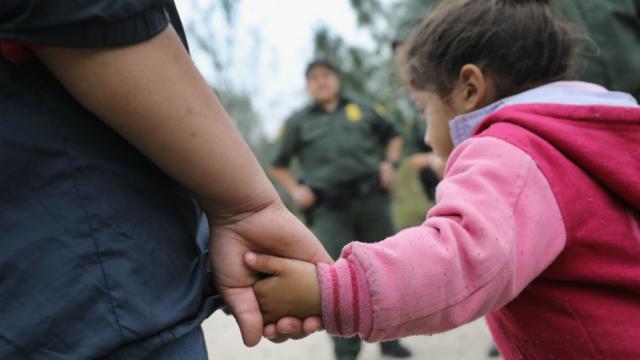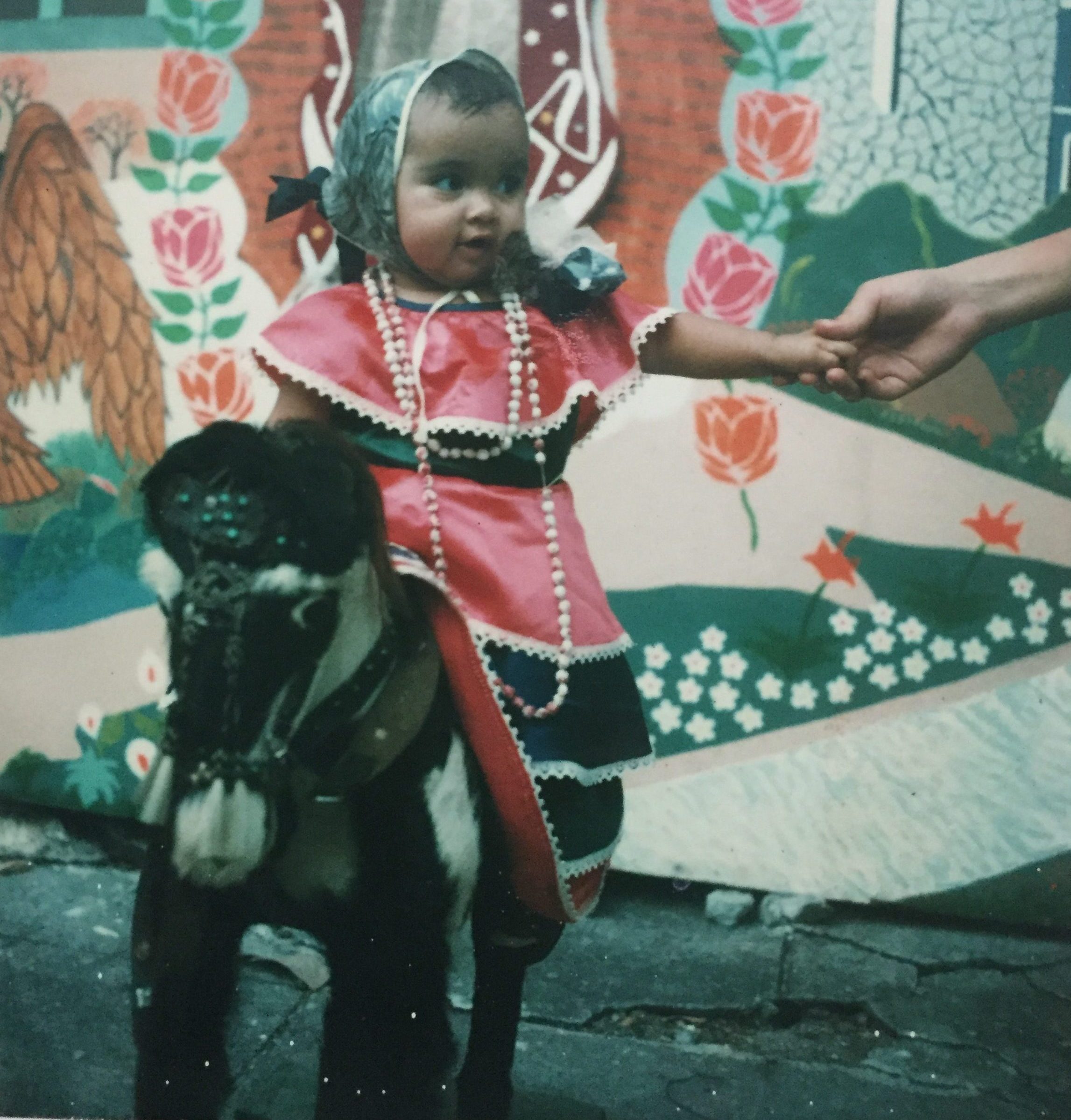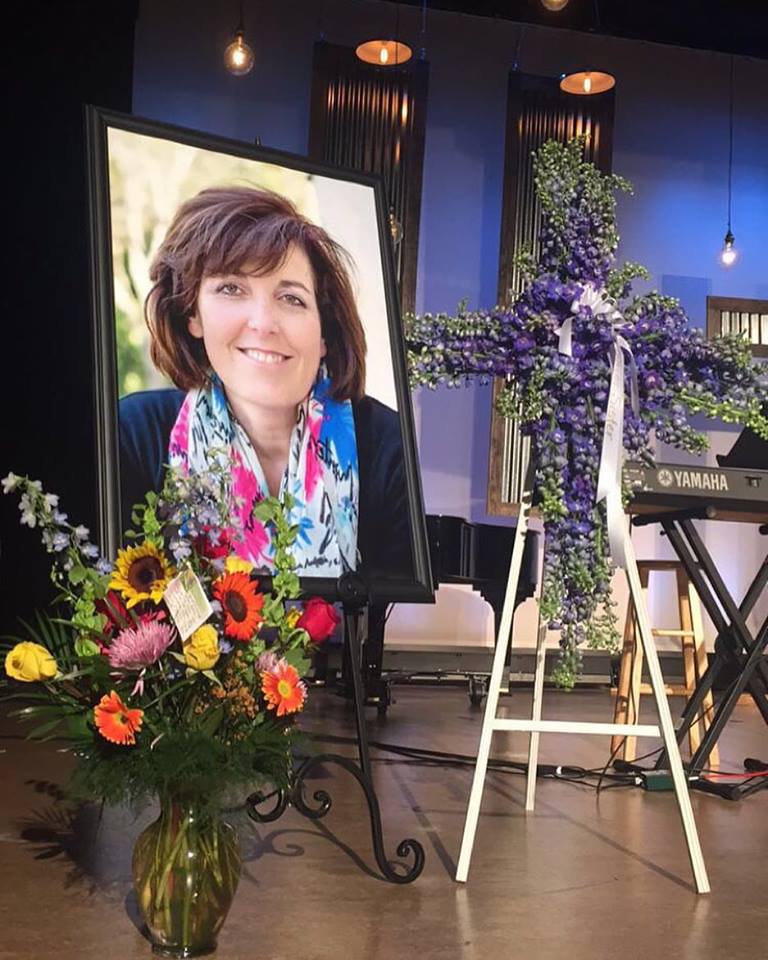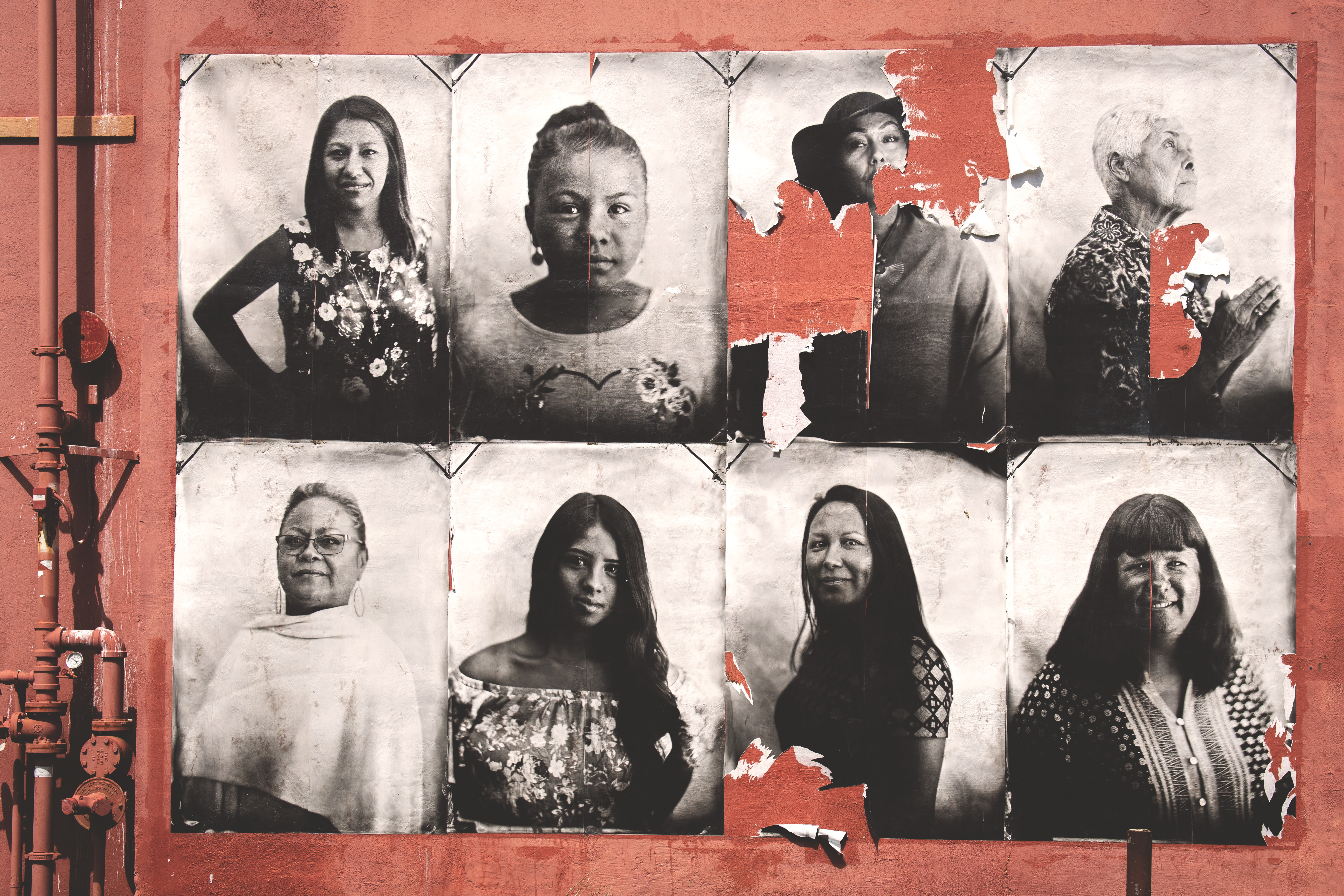“Jose, who is 3 years old, and his mother presented themselves to U.S. Border Patrol officials at a port of entry on the southern border. She feared gang violence and threats in her native Guatemala. Upon arriving in the United States, Jose was taken from her, and she was placed in an immigration jail.”
This is just one example that Chris Palusky, president of Bethany Christian Services, tells of the many stories of what children and their families experience at the border.
There is so much I want to say about what is happening in recent weeks on the border and in our country towards immigrant families. First, it has been difficult to watch the news and listen to a variety of opinions as it is discouraging to read and listen to the inhumanity of people’s comments, the hurtful words that are inflicted without knowing or even wanting to understand the pain of others.
For my family and I, it is not just about a story on the news or an article but it is very personal. I crossed the border similar to many of these children. My mom braved that journey (which you can read in a previous post) and I can’t imagine being separated from her once we made it to what we hoped was freedom and safety.
I can see myself in those children and their stories. Desiring the “American Dream” and not attaining it, I can only imagine where I would be. Maybe dead, maybe not, but for sure living in poverty and in a country full of crime and violence. I might be uneducated or maybe I would have some education but with very little opportunities to thrive. I don’t know and I’m grateful I don’t need to know.
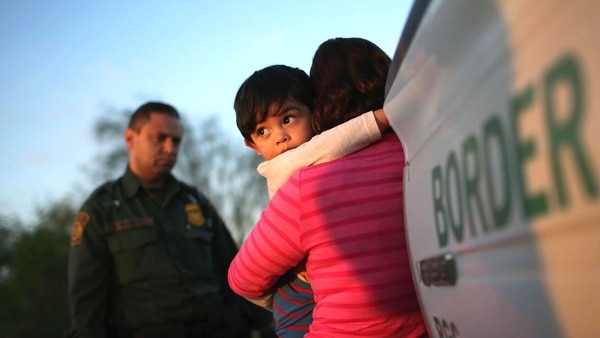
Many of the families being detained at the border are traveling from Central American countries, many who are seeking asylum. They want to find protection from the crime and violence in their communities. According to the Latin American Post, in El Salvador, where I was born, “the 20 first days of the current year, 220 homicides were registered, 25 more than those calculated during the same period in 2017.”
In a recent article by World Economic Forum of Latin America, they share that “…in previous years, Latin American and Caribbean countries still lead the world in terms of crime and violence. The five countries reporting the highest homicide rates internationally in 2017 included El Salvador, Honduras, Jamaica, St Kitts and Venezuela.”
Besides the rise in violence, the poverty level has risen too. According to Telesur, “The levels of poverty and extreme poverty have risen in Latin America in 2015 and 2016, after more than a decade of decline…
While in 2014, 28.5 percent of the region was in poverty — 168 million people — that number jumped to 29.8 percent in 2015, then 30.7 percent in 2016. Extreme poverty, on the other hand, rose from 8.2 percent in 2014 (48 million people) to 10 percent in 2016 (61 million people).”
These statistics give us just a small glimpse of some reasons why families are so desperate to leave their home countries and risk their lives to come to the U.S.
According to UNICEF “Every month, thousands of children in Central America risk being victims of kidnappings, trafficking, rape or murder on their way to the United States to take refuge from gangs and poverty.”
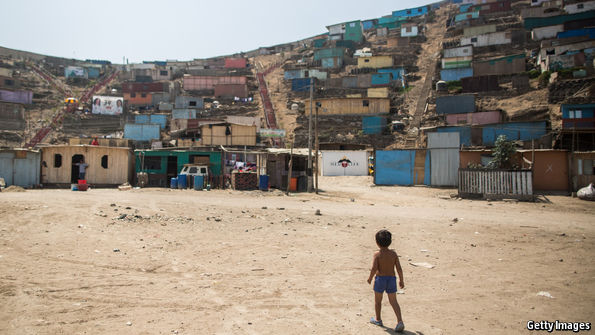
A few years ago I was able to attend a detention center for unaccompanied minors in TX. It was a clean facility, a place where children were being taken care of and working on their next steps in the immigration process. Most of them had left their home country on their own, seeking refuge in the U.S. When detained at the border they are placed in centers like the one I visited. One year that I was there, the youngest child was 4 years old, all alone and desperate for his family. Several of them did not speak Spanish, they spoke an indigenous language from their country, so it was hard for the center to communicate with them, plus some didn’t want to talk because they were afraid.
Though the center really worked hard to make it a comfortable place for the children, it is still a detention center. It was a somber place, not a summer camp, and though they provide what they need it was not where the kids want to be. They each desire to be with their families.
Some people will say that the children or their parents put themselves in this situation, but I hope that you would seek compassion and put yourself for a minute in their shoes. Think about how desperate, a CHILD (or parent) has to be to leave their home and journey the long and dangerous trip to come to the U.S. Their desire is safety and freedom from the violence and poverty that many of us will never come close to experiencing.
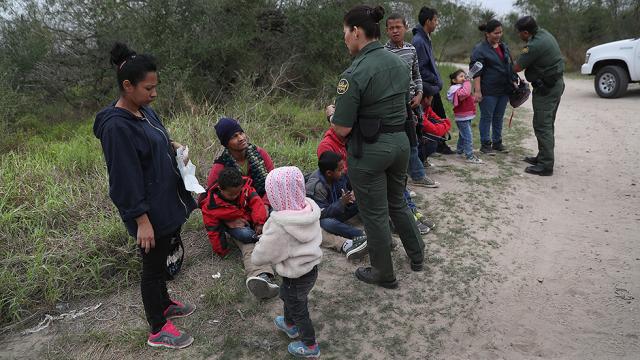
This is not about politics this is about humanity, compassion, love for our neighbors, the orphan, the widow. The Bible often speaks about loving the orphan, the widow, and the stranger. For example:
Deuteronomy 10:18 says, “He defends the cause of the fatherless and the widow, and loves the foreigner residing among you, giving them food and clothing.”
Hebrews 13:2 says, ”Don’t forget to show hospitality to strangers, for some who have done this have entertained angels without realizing it!”
And Leviticus 19:34 says, “You shall treat the stranger who sojourns with you as the native among you, and you shall love him as yourself…”
I share all of this because I am burdened by the struggle these children and parents are facing. If there is a group who needs a voice at this time, who are marginalized, misunderstood it is these beautiful children at the border. They can not defend themselves, but you and I can use our voice to advocate for them.
Though this is not a brand new issue, this has been happening for a long time through different administrations but the new policy by the attorney general a few months ago did cause an escalation in the separation of children from their parents. The immigration laws and the details of what is happening at the border are complicated and tedious and that is not the point of this post.
I do want to encourage you to do your research, to read different points of views, to pray, volunteer, serve, listen, to meet someone who has been or is on this journey, go to the border if possible, visit a detention center, listen and pray some more.
Coming to the U.S. “legally” is not easy or simple as speaking it. Later I will write a post on what it takes to enter the U.S.
My heart’s desire is for you to begin a healthy dialog with others of what you can do that will cause change. A safe space to talk with others who are on this journey and or hear a fresh new, informed perspective.
Martin Luther King Jr. said,
“Life’s most persistent and urgent question is, ‘What are you doing for others?’
What will your response be? What action steps can you take?
Some will be led to protest, some will write letters or sign petitions, others will not do anything because you feel powerless.
What will the church do? What is our next step as the body of Christ?
Below you will find some resources that will hopefully help you begin to evaluate what you might do. Please listen and read with a posture of learning and ask The Spirit to lead you towards your next step.
- welcomingimmigrants.org is a group I have recently been a part of. It’s a great place where you will find a free download Bible study that will walk you through a Biblical perspective on caring for immigrants and refugees. You can also find them on Facebook where they have great articles and webinars that gives more insight towards these issues and what the body of believers can do.
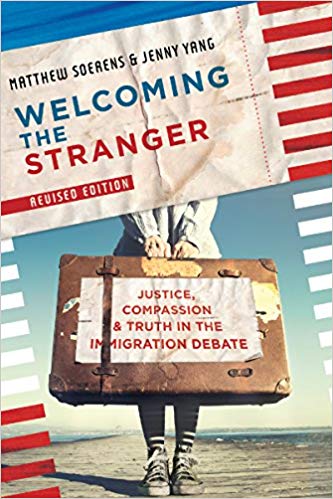
- Through Welcome, I learned about a revised book, Welcoming the Stranger: Justice, Compassion & Truth in the Immigration Debate. In this book World Relief immigration experts Matthew Soerens and Jenny Yang move beyond the rhetoric to offer a Christian response to immigration. In this book they point toward immigration reform that is compassionate, sensible, and just as they offer concrete ways for you and your church to welcome and minister to immigrant neighbors. This revised edition includes new material on refugees and updates in light of changes in political realities.
A friend of mine led me towards the following organizations where you can find out more about how to serve.
- Catholic Charities (catholiccharities.org)
- Southwest Key Programs (www.swkey.org) “Southwest Key is committed to keeping kids out of institutions and home with their families, in their communities. We do this through three areas of programming: youth justice alternatives, immigrant children’s shelters, and education.”
I hope this post begins your journey of seeing things through a different lens or at least helps you to start doing your own research.
“It is not possible to be in favor of justice for some people and not be in favor of justice for all people.”
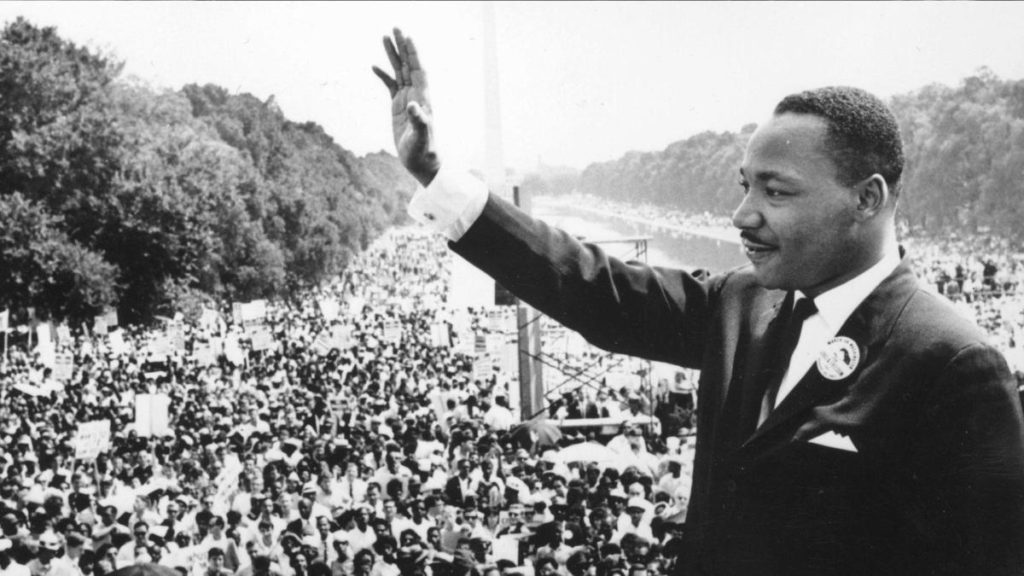
Stay tuned to the next word…

